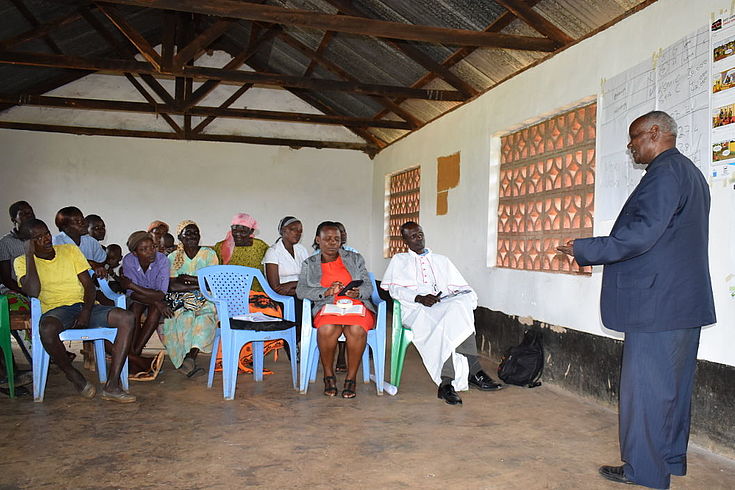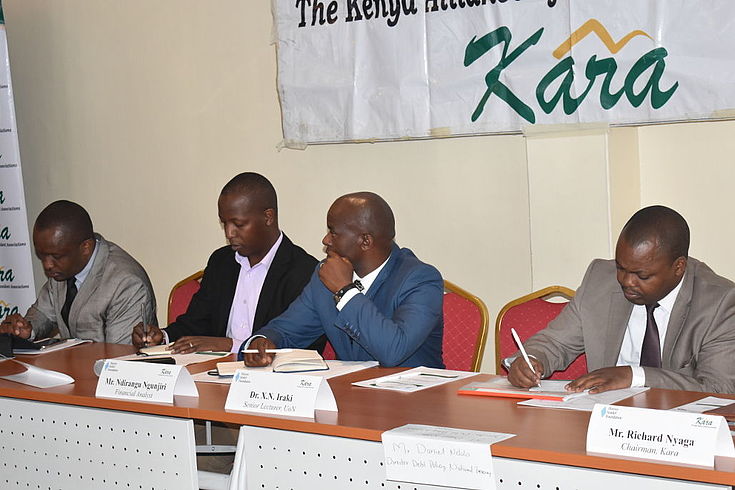Civic Engagement

Participants listening keenly on workshop proceedings regarding voter education in Kisumu.
HSS Kenya
Civic education enhances citizens’ knowledge of a country’s governance system and their responsibilities within it. The Kenyan governance system has experienced several changes, from the single-party system to the current multiparty system. Most importantly is the new devolved governance system that was set forth by the Constitution of Kenya 2010. In light of these developments, HSF together with its partners provides civic education on the same to enable citizens to understand and participate effectively in the governance and political processes. This takes place in selected counties at ward levels, and throughout in between electoral periods in order to foster meaningful change through progressive engagement. Under this programme area, we seek to promote the democratic engagement of citizens. This is then achieved through strengthening the democratic competencies of citizens; improving the ways of participation in democratic processes; and further strengthening the participation of citizens in political processes and decisions in selected counties.
Current partners:
Ecumenical Centre for Justice and Peace
Inuka Kenya Ni Sisi Ltd- Sauti Yetu Initiative

Panelists at the KARA forum
HSS Kenya
A. Political Dialogue
HSF promotes political dialogue in the context of complex political issues. The aim is to strengthen the political discourse with different actors in decision making positions across social, political, economic, peace and security sectors. The dialogue in this context not only means that certain issues are discussed and discussed in-depth but also supports actors in seeing new perspectives and (re) shaping their future. In particular, decision-makers are increasingly confronted with complex issues that can hardly be solved with a wealth of experience acquired in the past. Many of these complex issues require disconnecting from past behaviors, especially with regard to leadership and problem-solving, and approaching societal challenges differently. Problems seem more complex and intertwined. "Standard solutions" or "quick-fixes" are not always successful because they often do not meet the needs, are not cross-thematic, sustainable and supported by all. A holistic linking of relevant topics and problems is rare. More agile approaches and organizational structures are needed to understand dynamic problematic situations and to work out solutions. The dialogue is a space for a real, authentic, cooperative exchange, without the structural and institutional barriers, such as retracted traditional power structures. To this end, spaces and processes need to be created that foster openness to new thinking and innovation as well as a culture of cooperation and learning together. Such dialogue processes can open up new areas of action and create innovative solutions that are the product of common thought processes.
HSF seeks to achieve this through increasing knowledge about complex political problems and feeding it into discourses; increasing discourse/ conversation among politically interested actors; and increasing skills (new working models) of politically interested.
Current partners:
The Kenya Alliance of Resident Associations (KARA)
Institute for Security Studies (ISS) Africa
Well Told Story
